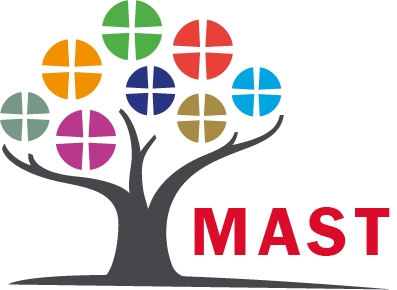Academisation
The Methodist Church has historically held a neutral approach to academisation. If a school chooses to join an academy trust, then MAST have supported the school and circuit to enable this to happen. This strategy has in the main served us well.
In March 2020 Epworth Education Trust was established following the merger of Acorn Trust and Wesley Trust in order to establish a strong trust that would provide an even stronger and more efficient platform to take us forward. This has enabled Methodist Education to build a credible and respected presence in the academies sector.
In March 2022 the Government published a White Paper, “Opportunity for All: Strong schools with great teachers for every child” which shared their aspiration that all schools will belong to a family of schools through a strong trust by 2030. Whilst the schools bill will no longer go ahead it is clear that the Government's aspiration for all schools to belong to a family of schools in a trust remains. This has changed the direction of travel and focus for many across the whole education sector.
Since early 2022, the Department for Education (DfE) has required MAST, as Religious Authority, to work with them to establish a strategy that will enable this to happen. The DfE required MAST to produce a strategic plan that met the aspiration of the White Paper, which shared the aspiration for the size of trust, whilst also meeting their description of a ‘Strong Trust’. In Autumn 2022 the DfE approved a strategy which would create 2 Methodist Trusts – a Northern Trust (Epworth Education Trust) and a Southern Trust (Inspiring Lives Education Trust).
Each Trust will be an inclusive trust, that whilst there to provide a home for our Methodist schools will also be open to community schools, to whom our values and way of working is attractive. Being Methodist but open to all is an important principle of our Methodist trusts because it is an important principle in Methodism. Our trusts like our schools are ‘for all, for all’. As Mr Wesley says, ‘if your heart is with my heart, then give my your hand my brother’ – we are looking to stand firm in our Methodist vision and identity but not to the exclusion of all others.
The Methodist Church, in undertaking its responsibilities as religious authority, has worked to underpin this new world in Methodist polity. No school has been required to convert but, where they have made that choice, the Methodist Council determined in 2017 that Methodist schools should join the Methodist Trust and that joint schools should do what their Religious Authority says – either join the Methodist Trust OR the trust established by their Diocese, as their ‘other’ Religious Authority. This decision was then affirmed in the Council’s report to the Conference. This isn’t just a stand-alone decision of the Methodist Church – it brings our polity into line with the Memorandum of Understanding, established by the Department for Education for Faith Providers.
In 2021, the Conference adopted the strategy paper for the Methodist Church in Education, Transforming Lives which affirms the work of Methodist schools through their faithful, transformative presence in communities up and down the country and expresses the aspiration of the Church to see this presence continue, grow and flourish.
‘Growing schools, offering excellent education with a confident Methodist ethos, working together, and prioritising areas of need. …. This phrase intentionally covers the dual aspirations of the Methodist Church to increase the number of schools that it runs (as determined by Conference 2012) and also to ensure, through working to the highest possible professional standards, that all Methodist schools flourish in providing an excellent education in the fullest sense and in line with our Methodist ethos and values.’ Transforming Lives
